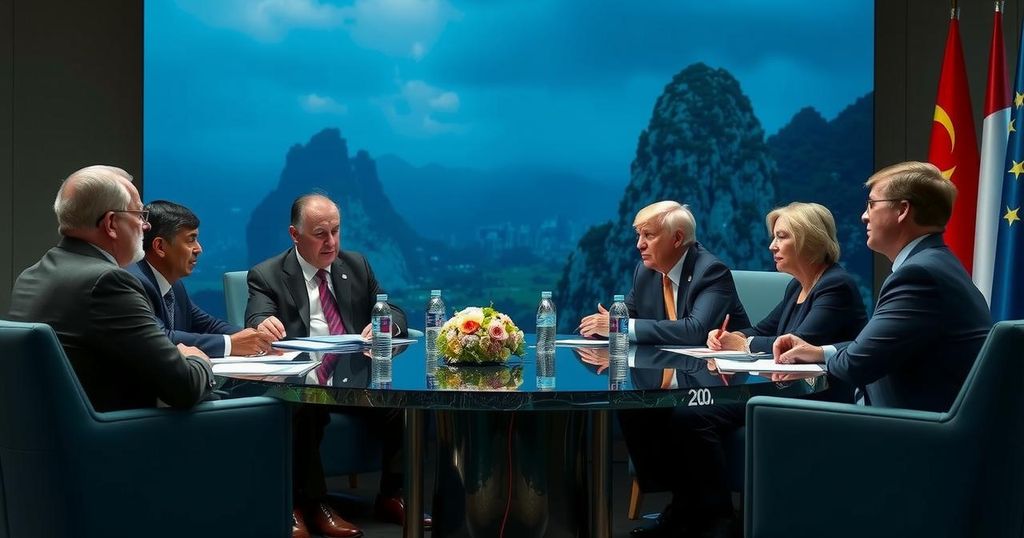G20 leaders, during the final day of the Rio summit, prioritized climate change, addressing the world’s trajectory toward record warmth. They emphasized enhanced climate finance and a new financial goal for developing nations. Concerns about U.S. policy shifts under Donald Trump added urgency. The summit also saw commitments toward combatting plastic pollution and advancing global climate talks.
On the final day of the Rio summit, G20 leaders convened to prioritize climate change in light of concerns about the world potentially experiencing its warmest year on record. This meeting comes as they prepare to bolster commitments leading into the U.N. climate talks in Azerbaijan. With Donald Trump’s imminent return to the presidency, which may include a withdrawal from the Paris Agreement, urgency looms for the G20 nations to reaffirm their climate obligations. During the summit, discussions centered on enhancing sustainable development and facilitating a transition to cleaner energy. The G20 aims to create a favorable atmosphere for negotiations at COP29, as expressed by the host nation, which urged the necessity for decisive action to advance climate discussions that had stagnated. A joint statement from G20 leaders indicated a collective recognition of the need to significantly increase climate financing—from billions to trillions—to effectively combat climate change. The leaders have emphasized the necessity of establishing a new financial goal for climate aid to developing nations, amidst calls for greater contributions from wealthier developing countries and regions. Brazilian President Luiz Inácio Lula da Silva opened the summit with a stark reminder of the pressing realities of climate change, stating, “the impact of climate change was evident all over the world and needed to be addressed urgently.” The G20 nations collectively bear responsibility for a substantial portion of global emissions and GDP, rendering their collaborative efforts critical in shaping climate policy. Efforts also extended to addressing plastic pollution, with G20 nations pledging to finalize a legally binding treaty by the end of 2024 to tackle this issue, indicating a comprehensive commitment to environmental stewardship.
The G20, comprising the world’s largest economies, plays a crucial role in global climate governance. With a significant share of the world’s economic output and greenhouse gas emissions under their umbrella, their decisions on climate finance and policy are pivotal for international climate agreements. The Rio summit focused on sustainable development, and the transition to clean energy intersects with urgent global warming concerns, notably exacerbated by the political shifts, such as Donald Trump’s presidency, which previously favored reduced climate commitments.
The G20 summit in Rio served as a significant platform for leaders to address the urgent implications of climate change. With pressures from the upcoming U.N. climate negotiations and shifting U.S. political landscapes, there is a crucial need for increased climate financing and international cooperation. The commitment to explore binding treaties on plastic pollution further emphasizes the G20’s role in redefining global environmental responsibilities.
Original Source: kathmandupost.com






